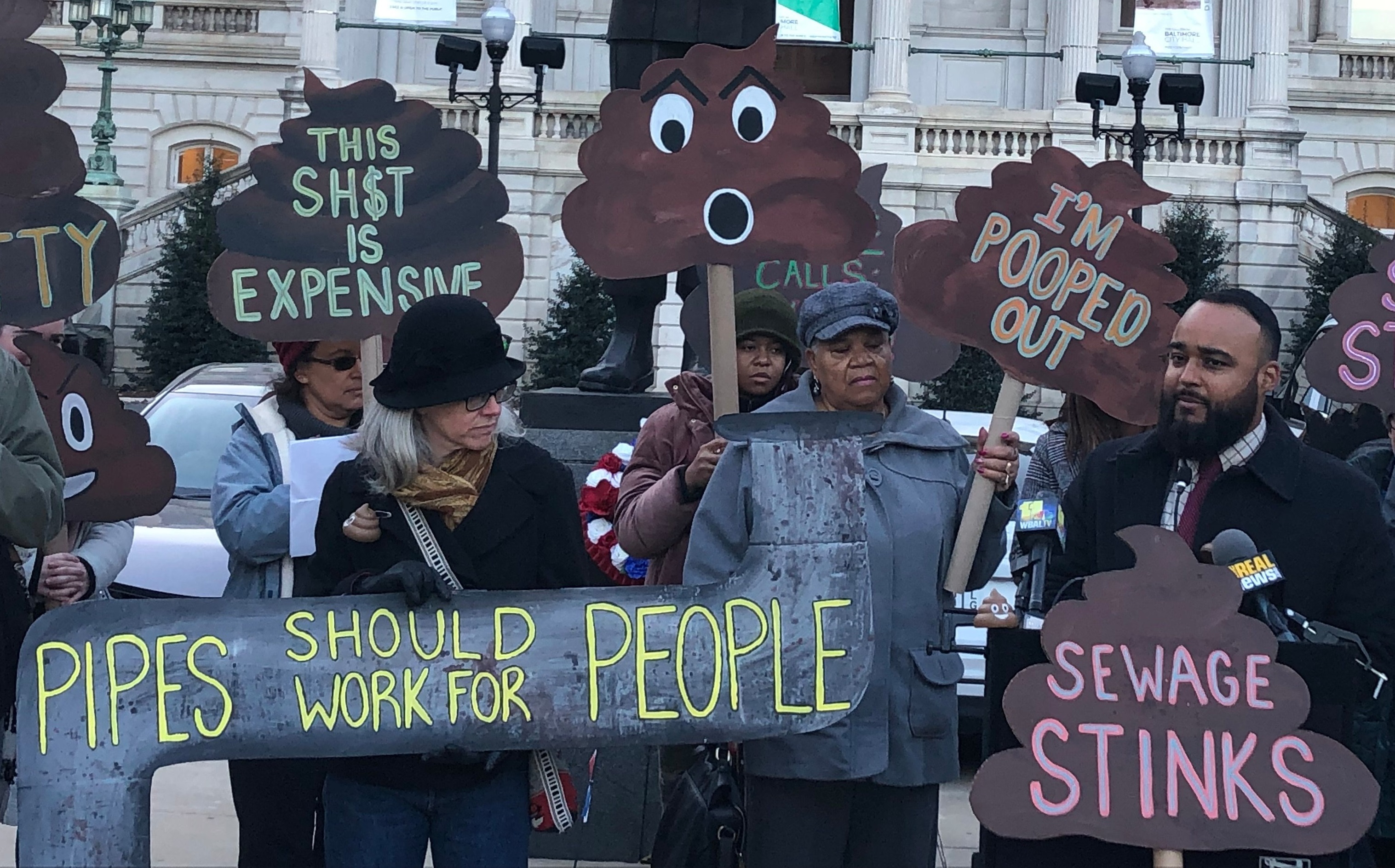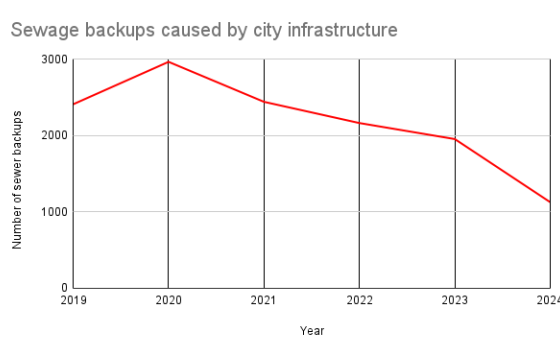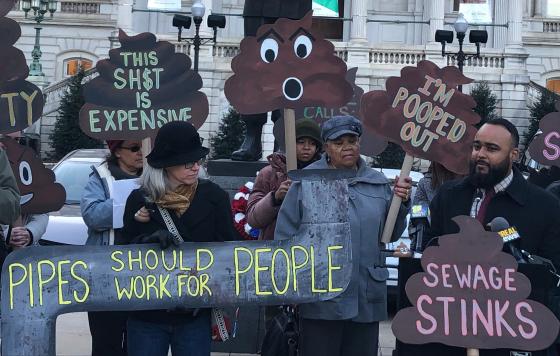
Last week, the Baltimore City Council held a public hearing on the proposed Fiscal Year 2026 city budget, and next week on Wednesday, the City Council will hold a workshop on the Department of Public Works's budget particularly. After two years of dragging its feet, the Baltimore Department of Public Works is still refusing to implement an EPA/MDE order to expand its assistance program for sewer backups, and a thousand households with sewer backups caused by city infrastructure went without help in 2024 as a result. With a slight budget amendment, the City Council could fund the program in accordance with the EPA/MDE order and pressure DPW to do the right thing. Read or download our testimony with Blue Water Baltimore below for the details, and check out testimony by Clean Water Action intern Kristen Jones here!
Testimony on Sewer Backups
and the Sewage Onsite Support Program
in Baltimore City’s Fiscal Year 2026 Proposed Budget
For years, residents, community associations, and environmental organizations across Baltimore have been demanding that DPW provide meaningful assistance to households facing sewage flooding backwards from the City’s sewer system into homes. In 2018, DPW launched the Expedited Reimbursement Program (ERP), required by the Modified Consent Decree; in 2019 and 2020, following City Council investigative hearings, DPW made a number of policy improvements to the program above and beyond the Modified Consent Decree requirements; and in 2021, DPW launched the Sewage Onsite Support (SOS) program. Throughout these years, however, DPW has maintained the most onerous restriction on these programs that prohibits most impacted residents from receiving assistance: only allowing sewer backups caused by wet weather events to be eligible for help.
Following years of advocacy by community leaders and impacted residents, in May 2023, the U.S. Environmental Protection Agency and Maryland Department of the Environment ordered Baltimore City DPW to expand the SOS program to make every household with a sewer backup caused by issues in City-owned, City-maintained infrastructure eligible for this emergency assistance - rain or shine. However, DPW refused to follow that order, and the dispute has continued for the past two years without resolution. In defending this dispute at last year’s budget hearings, the Director of Public Works incorrectly stated that a 2022 feasibility study that DPW conducted in response to a City Council resolution projected the cost of following the EPA order at $14 million. This figure would include the projected SOS cost to address every single sewage backup reported in Baltimore City, whether it was caused by public or private infrastructure. However, the EPA/MDE directive is clear that only backups caused in part or in full by City-owned infrastructure would be eligible for the SOS program. In truth, that study’s conclusions projected the total potential budget of following the EPA order to be $7.5 million.
With the number of sewer backups declining, the budget to implement the policy required in the EPA order is also declining. The 2022 feasibility study based its cost estimates on the average number of sewer backups of different causes reported annually between 2016-2021. It reported the average annual number of backups caused in whole or in part by City infrastructure as 2,704. However, there’s good news: according to our analysis of DPW’s Modified Consent Decree Quarterly Reports, the average number of sewer backups has fallen significantly since that time. In 2024, there were only 1,129 reported sewer backups caused in part or in full by city infrastructure.
This means that the City would need to budget only $4.1 million in order to fully fund the potential cost of implementing the EPA order. The FY26 proposed budget must already include $2 million for sewage backup relief, a requirement of the Modified Consent Decree, so adding just $2.1 million to Service 670 (Administration - Water and Wastewater) would fully fund the potential cost of implementing EPA/MDE’s order.
Actual spending would likely be significantly less than this figure. As the sewer pipe relining and replacement projects associated with the Modified Consent Decree continue to be implemented throughout the Baltimore region, sewage backups should continue to decline. Additionally, some households with the relevant homeowners’ insurance or other means would likely choose not to use the SOS program. However, making this funding available would ensure that households without those options would be able to access safe, sanitary cleaning and disinfection services after a sewer backup, without putting themselves or their families at risk.
In January, the City Council unanimously passed Resolution 25-0004:
FOR the purpose of expressing support for the Environmental Protection Agency’s (“EPA”) and Maryland Department of the Environment’s (“MDE”) May 22, 2023 order to the Baltimore City Department of Public Works (“DPW”) to extend Sewage Onsite Support (“SOS”) Program coverage to all residential backups caused, at least in part, by a condition in the City owned portion of the sewage collection system, and calling on the Mayor and Department of Public Works to implement the full original order in the Emergency Response Plan under the Modified Consent Decree between the City, EPA, and MDE.
But in the four months since, the City has not resolved its dispute with EPA/MDE or otherwise expanded the SOS program, and households facing City-caused sewage backups still go without emergency cleanup assistance. Please amend the FY26 budget to add $2.1 million to the SOS program, fully funding the cost of the EPA order, and send a strong message that the City Council supports the EPA/MDE order and your constituents who are facing sewer backups from City infrastructure.
Sincerely,
Jennifer Kunze
Maryland Organizing Director
Clean Water Action
Alice Volpitta
Baltimore Harbor Waterkeeper
Blue Water Baltimore



